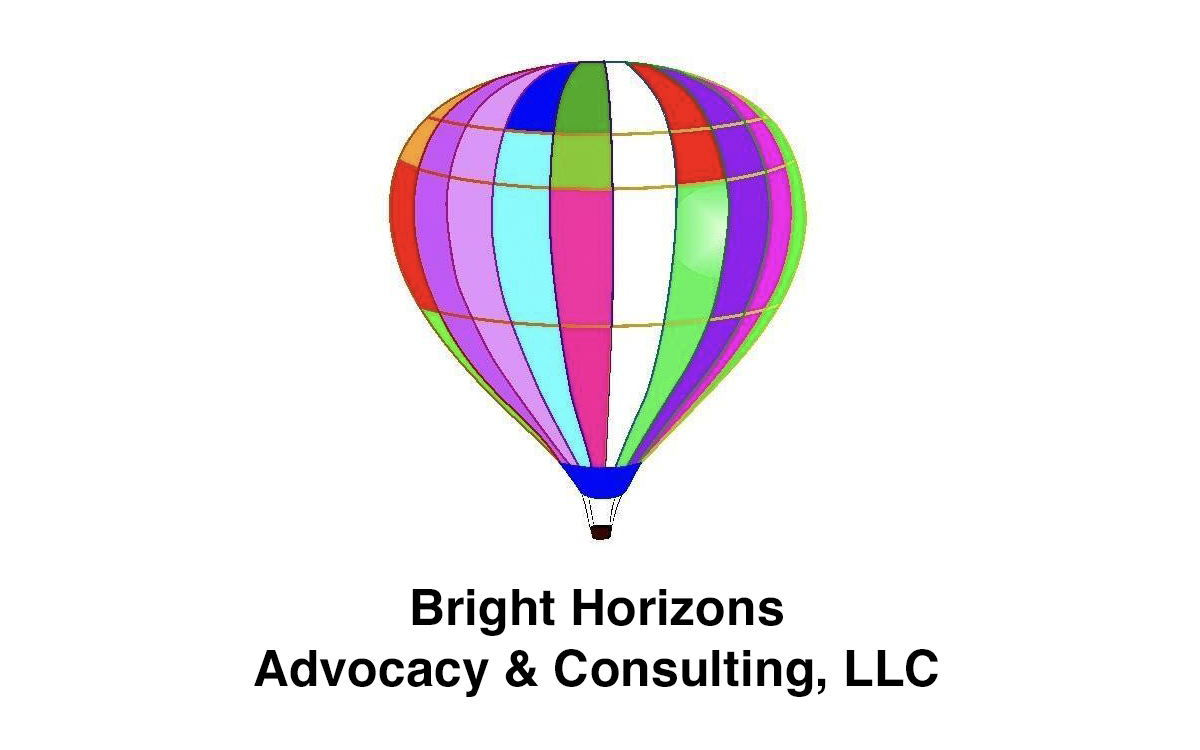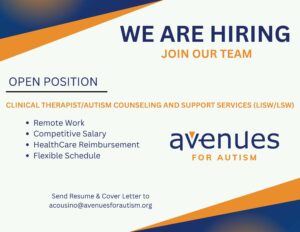
For those of you that may not know us, Bright Horizons Advocacy & Consulting is a nonprofit that provides a variety of types of advocacy for people with disabilities. We specialize in special education advocacy for people from age 3-22 in Ohio and up to age 26 in Michigan. We assist with IEPs, 504s, and private school plans. In this particular work, we are proud to be partnering this year with another APN member, Courageous Community Services, Inc. Bright Horizons can also assist with college level advocacy, ADA inquiries, and Social Security applications. We do not exclusively serve people with autism; however they make up about 30% of our clientele, and many of our staff and board either have autism themselves, or close relatives on the spectrum, so it is a set of needs near and dear to us.
Even though we’ve all probably gotten a bit disoriented with time over the last year, spring is almost officially here, the vaccines are here, and our kids are slowly going back to school, which reminds us as well that we are coming into the heavy season for IEPs as many Districts do their IEPs in the spring. We know a lot of you have had struggles with special education over the last year, and many of you may not have thought to contact an advocate, either because the whole pandemic was so overwhelming everybody was just trying to get by, and you hoped your school District was doing the same in good faith, or because you had no idea what you could, or should be expecting in terms of special education during a pandemic.
Either way, there are some things all parents need to be aware of as you plan for your child’s next IEP.
No one waived IDEA over the last year. It didn’t go away completely. The federal government, and by extension the state Department of Education still required that IEP‘s remain in effect. That said, federal and state guidance was that there could be flexibility in delivery of services, because not all services could be delivered in the same way when a lot of the year was online. Case in point, your students did not have paraprofessionals coming to your homes. (Or if they did, please let us know, because you won the pandemic special education lottery.🙂) Similarly, your child’s therapy services may have looked a lot different, and you as parents may have had to take a more active role in practicing therapies at home after consulting with the therapist via video chat then perhaps you would have previously. These differences are generally within the guidelines of the pandemic flexibility in delivery of services allowed by the government. However, if you never heard from your child’s therapist at all, or much less than the IEP indicates, that’s a compliance problem. Same thing with services from your intervention specialist. How the services might’ve looked because they were virtual instead of in person for a large portion of the year, is not the same as whether or not they were provided in the appropriate volume. So, before going to a spring IEP, review your child’s existing service minutes promised in Section 7 of the Ohio IEP, or your service delivery minutes in the IEP for other state forms, and compare them to the amount of contact time you are aware that your child received from special education specialists such as intervention specialists and related service providers. If the amount of time is significantly different, your child is likely owed compensatory time. You should ask your District for that time, or if you encounter resistance, work with your state department of education to file a complaint. Advocates are happy to assist you with this process.
Even if your child did get their IEP reasonably delivered, it is highly likely that they have fallen behind in any case. Educators and government officials, advocates and parents alike, all recognize that the last year was not the same in quality as in person schooling would have been. All Districts have been charged by the states to come up with recovery programs to help all students, special education or not, to make up some of the last ground. This is not the same as extended school year. Each District is required to make the recovery options accessible to the full spectrum of students, for example if they are doing an academic summer camp, intervention specialists need to be available as well as general education teachers. Depending on the extent of your child’s disability, they still may not be able to access the District’s group offerings, and may need something individualized for them. It is your right as a parent to ask for that as well. Again, that is something with which advocates are happy to assist you.
Your student may also be eligible for extended school year. This is not the same as compensatory services or recovery services, but it may look similar as it will likely be some form of service over the summer. To be a candidate for extended school year services, a student must show more than expected loss of skills over breaks. A general rule of thumb is that schools assume everybody is catching up from summer until about Halloween, but if your student is still working on skills they used to have in the spring around Christmas time, they would be eligible for extended school year. That is really simplifying a complex topic, and there are other ways to qualify for extended school year, although depending on who you ask in Ohio specifically, you may be told that it is only considered for regression. Extended school year must be individualized, and if needed, transportation must be provided. By Individualized, we mean that a District cannot say to you that their extended school year is one specific program for all students, or they only address one or two types of skills for extended school year. Extended school year eligibility is based on looking at each individual child’s IEP, and where they continue to have difficulty through the year. As such, extended school year services can address any applicable goal on the IEP. If you have further questions about ESY, please contact an advocate.
So, there’s a quick rundown of the top things that you need to know that would make this year‘s spring IEP likely significantly different than meetings in previous years. Advocates are available to go to meetings with you; however we can also provide you with articles and resources, and information over the phone or email, if you’re not ready to take the step of hiring an advocate.On our Facebook page, we have a number of educational videos we’ve done over the years on various topics, as well as power points, and links to articles on our website. We are also excited to announce a new feature we have started called Question of the Day, for which we do a quick video every few days addressing common questions that we have received during the week. If you have a topic suggestion, or would like our help, please feel free to call or text us at 567–218-0943, or email us at brighthorizonsinfo@gmail.com. We’d love to hear from you.
Remember, spring is here, and it will get better, and we are all in this together!


